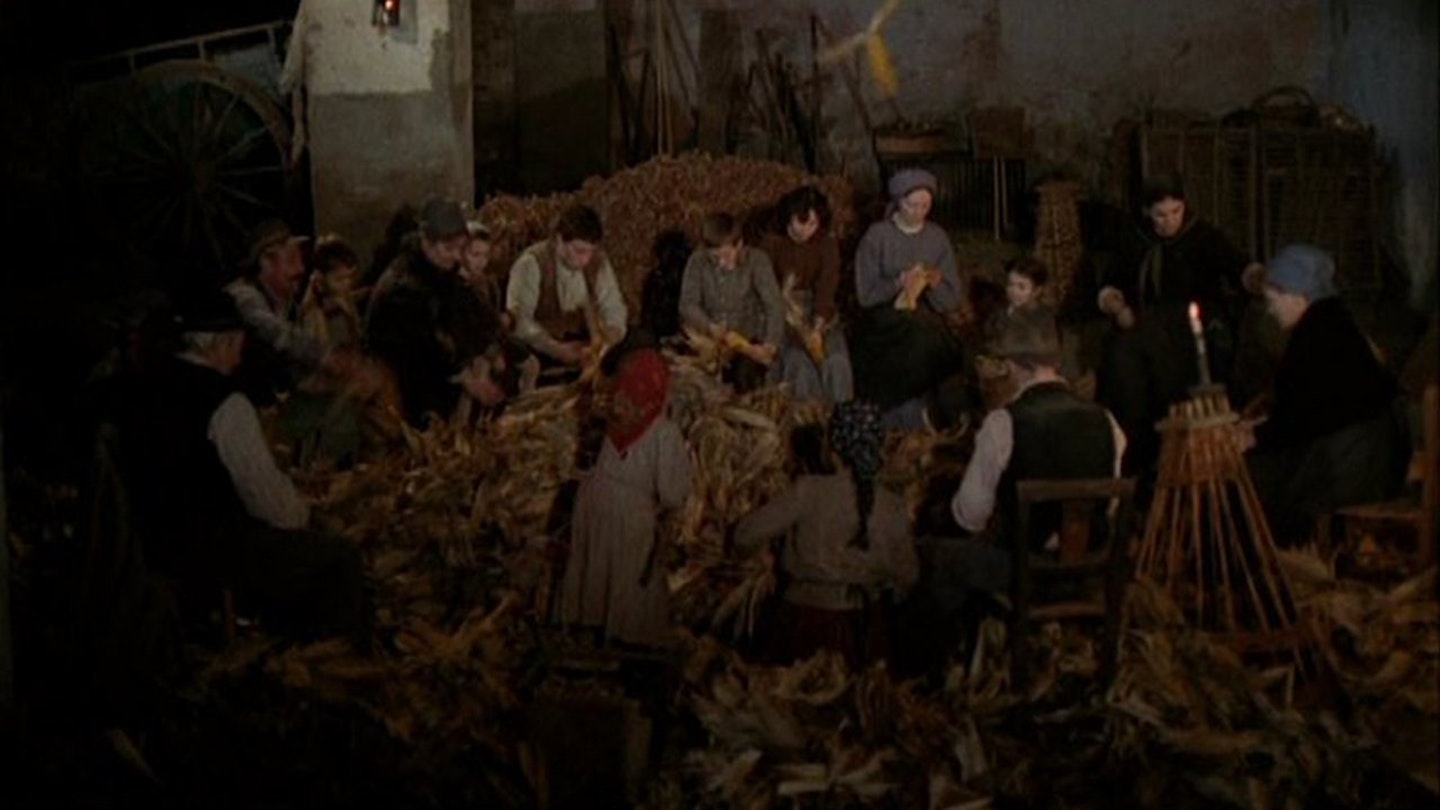Based on stories related by his grandmother, Ermanno Olmi's rural epic is one of the most neglected masterworks of the Italian cinema. Following in the neo-realist tradition, this deeply moving recreation of a bygone era employs a non-professional cast (speaking its own Bergomesque dialect) and a near-docudramatic shooting style. Through a meticulous accumulation of detail - that gives the film both its power and its heart - Olmi celebrates both the rugged regality of the changing landscape and the indomitability of the 19th-century Lombard peasantry, as they conduct their partnership with nature under the unforgiving gaze of their exploitative superiors.
Originally made for Italian television, The Tree of Wooden Clogs provides a more authentic insight into the lot of the tenant farmer than either Bernardo Bertolucci's 1900 or the Tavianis' Padre Padrone. Shooting in `the light of the seasons' and without resort to artificial colours or psychological camera angles, Olmi captured the pace and flow of country life by basing events on recurrent rituals and the very humanity of characters who were just as likely grow tomatoes in secret or try to hide a gold coin in a horse's hoof as they were to chop down a tree to make the clogs that would enable a child to walk to the school that represents his only chance of bettering himself.
Yet, despite such efforts to deglamorise rural toil - through such unflinching incidents as the slaughter of the hogs - this remains a work of bucolic beauty whose images gleam with a perfection that only memory can inspire. Moreover, the contrast with the discontent that Lucia Pezzoli and Franco Pilenga witness during their honeymoon in Milan could not have been more telling, as though Olmi were lamenting the urban impatience that had come to replace rustic constancy during the rapid industrialisation of northern Italy.
Indeed, left-wing critics took Olmi to task for contriving a romanticised pastorale that was sustained by an unerring confidence in the benefits of faith. But the Cannes jury disagreed and awarded the film the Palme d'Or.
